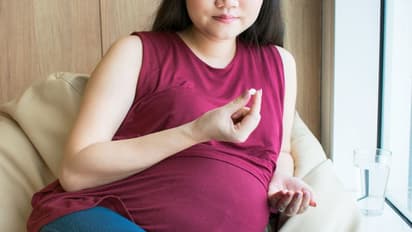Study reveals how coronavirus can damage placenta during pregnancy
Team Asianet Newsable | Asianet News
Published : May 26, 2020, 02:58 PM ISTPrevious studies have indicated that it’s remotely possible for coronavirus to be transmitted in utero, though in all but the rarest cases it appears not to pass through the placental barrier between mother and baby
Check the Breaking News Today and Latest News from across India and around the world. Stay updated with the latest World News and global developments from politics to economy and current affairs. Get in-depth coverage of China News, Europe News, Pakistan News, and South Asia News, along with top headlines from the UK and US. Follow expert analysis, international trends, and breaking updates from around the globe. Download the Asianet News Official App from the Android Play Store and iPhone App Store for accurate and timely news updates anytime, anywhere.
